Careers advice and information for Guildford
Making the right first impression at interview

When you get a call from a company inviting you in for an interview, begin by thanking them for the opportunity. Then confirm the time, date and name of the person you'll be meeting and what their title is. It's also very important to ask if you should bring anything with you to the interview.
What should your preparation involve?
The first thing to consider is the basic, yet most important factors, like knowing the company's name, address, telephone number and name of the person who will be interviewing you. It's a good idea to use a website like Streetmap to locate the company, to ensure you've got the right address and also get directions on how to get there. You then need to find out as much as you can about the company and their website is the ideal place to look, otherwise you can use sources like the Companies House library. It's important to find out what form the interview will take, too so you're prepared for whatever is thrown at you. For example, will it be competency based? Is it going to include behavioural questions? Is it going to be very informal, or are you going to be asked tough management questions? Find out whether it's going to be a one-to-one or a panel interview and check whether the interview will include psychometric tests. If they do, find out what type of testing is going to be used, because you'll need to prepare for that. There are a couple of websites, like www.uk.tickle.com, that will help get the grey matter working in the right way.
Should you do a mock interview beforehand?
It's a good idea to practice interview techniques with a parent, partner or a friend. If you type 'typical interview techniques' into a search engine there are loads of websites with standard competency-based interview questions. One of the first you're likely to be asked is how much you know about the company, so make sure you know things like when they were established, how many offices they have, the number of staff, whether they're national or international, and their ethos, etc. They will probably then ask you to tell them about yourself, so give a short summary of qualifications, career, skills and what you'd bring to the role. Another obvious question is why you're leaving your current job, but make sure you don't badmouth previous managers or companies.
How else can you create a good impression?
You need demonstrate a match between your background and the needs of the employer. Make sure you have a full understanding of the job description, and that includes the type of job, the responsibilities, and the kind of person they're looking for. You can ask the agency for this information, or if you're applying directly to the company then ask them for a full copy of the job description and person specification. Then take a look at your qualifications, strengths and weaknesses and see how they measure up to what the company is looking for. Look at your experience, skills and qualifications and consider what knowledge-based skills you have, which will probably be acquired from education and experience. This would include computer skills, languages, training and technical ability. And look at transferable skills, like your communication and people skills, analytical problem solving and planning skills. See how your personal traits fit into the person specification and ask yourself if you are dependable, flexible, hard working, expressive, a team player and whether you can cope on your own.
What other things should you consider before the interview?
Leave ample time to get there so you're not flustered on arrival, and give yourself time to relax so you're fully prepared when you go in. If you are driving to the interview, find out where you can park, while if you're going by public transport, make sure you know how long it's going to take to get from the train station or bus stop. Most importantly, switch off your mobile phone before you go in. The worst thing that could happen during an interview is for your phone to ring – the interview would be over then and there.
How should you dress for an interview?
The first thing an interviewer will notice is how you're dressed, so make sure you dress for success. Wear a conservative suit with a clean blouse, or shirt for men with tailored trousers and jacket. Not everybody owns a suit and you can get some good separates but make sure that it's smart - and don't forget to check that your shoes are clean. Men also need to remember to wear socks that tone in with the rest of their suit, so no patterned or white socks! An interview is not the time to make a fashion statement and fashion is notoriously fickle, so err on the side of caution - it's time to be conservative. The fabric is important too so don't wear linen because it creases badly and silk marks easily. Ladies should keep the handbag small or take a briefcase because it looks organised. It's very important to take a handkerchief as well because you don't want to start snivelling and coughing during an interview and be without a hankie! Don't wear too much jewellry and take out any facial piercings. Earrings are fine, but if you've got more than one hole in your ears then just wear one pair. One website we put people in touch with is www.styledirections.com, which can give you advice on what to wear.
How can you combat pre-interview nerves?
The only way to combat nerves is through good preparation, so knowing the company and what experience, skills and the type of person they are looking for is imperative. You can't prepare answers to all the questions, but get to know your CV. Be honest and try to smile and build a bit of a rapport with the interviewer, because 90% of the time you can do that, it's very rare for them to be completely rigid and not forthcoming.
What things should you take with you?
It's a good idea to take a passport, because you may be asked whether you're eligible to work in the UK and you'll need to prove that you are. Also, take a copy of your CV along, because there's nothing worse than forgetting something on there and then getting asked about it. Make sure you know your CV inside out and that you haven't lied about any dates or qualifications.
What should you keep in mind at the beginning of the interview?
The first things an interviewer will notice about you is how you're presented, your initial greeting, what your handshake is like, and how you greet them. When waiting in reception, don't sit down because when somebody approaches you, you'll already be lower than them. If you're standing in reception then you don't have to get out of the chair and you'll be at the same level as them, which shows confidence. But don't stand there aimlessly. Walk around the reception and have a look what's on the walls because there will be pictures and information. Pick up a brochure and start reading because it shows interest. When you're collected from reception, make sure you make small talk with them. Perhaps you can comment on the building or the weather? When you introduce yourself, shake hands firmly, but it's not the time to have power struggles, so be firm but not aggressive. At the same time, there's nothing worse than a limp handshake!
What mistakes do people tend to make at interviews?
Don't ask about salary or holiday benefits during the first interview because it can put people off. Leave that until the second interview, if there is one. Also, don't smoke or eat just beforehand. Some people are very anti-smoking so resist the urge for a cigarette for at least two or three hours before you go in. It is okay to pause before answering a question, and if you don't know the answer, don't just waffle. A pregnant pause isn't a problem because it gives you time to really think about the question and the answer you're going to give. Don't twitch or bite your nails during the interview, and if you tend to fidget and use your hands a lot then gently rest them in your lap. Maintain positive, but not intimidating, eye contact and don't stare too much or forget to blink. Undo your jacket if you feel restricted and ensure that you're comfortable. However, it's also important to maintain good posture and don't slouch. Pay attention to the interviewer's body language - if they are softly spoken you need to be softly spoken too, while if they are very confident you also need to be confident. If it's a panel interview, distribute all eye contact between everyone on the panel.
What questions should you ask at the end of an interview?
To get the best out of the interview you need to have questions ready. You can even write them down if that helps, and there's no harm in taking a notebook and pen in with you because it shows that you've prepared and that you're interested in the role and the company. Most people in interviews are in answer mode, so their mind often goes blank when they're asked if they have any questions. The interviewer then thinks they aren't interested in the role or haven't prepared for the interview. Tell them you've had a look at their website or at the information you've found through the library. Some good things to ask about include what kind of training will be provided and what format will it take, whether the position will involve working alone or in a team, and if it will involve teamwork then how many people are in the team. You could also ask about the company's future aims and developments, and the growth potential for this position. And how does the company recognise employee accomplishments - what qualities do the most successful employees in the company posses.
How should you close the interview?
If you feel the interview has gone well then ask when they think the second interviews are going to take place, and don't forget to smile when you leave. Again, shake hands firmly and thank the interviewer for their time, and let them know if you're interested in the job. Feel free to ask if they have any reservations about you and if they do then they can clear them up there and then, because later on it might be too late. The interviewer may invite you to tour the offices and don't forget that you'll still be under the microscope during this time. Make sure you speak to people, show interest in what they're doing, and shake people's hands because they will be looking to see how you interact with the rest of the team. Don't be afraid to ask questions and look to see whether the employees look happy. This is also an opportunity for you to check out the company for yourself.
How should you follow up the interview?
Drop them an email to thank them for their time and let them know you're very interested in the role, saying why. If the company said they'd be in touch with you by Friday, for example, and it's Tuesday or Wednesday of the following week, call them and say that you're very interested to hear how you got on and ask them for some feedback.
What is the key to a successful interview?
Preparation, preparation, preparation - you can't over prepare. If you haven't read the job or the person specification, you'll always fail. The more preparation you do and the more enthusiastic you are about the role and the company, the more likely you are to get the job.
Please share this article with your friends on Facebook - thank you.
Much of the advice on our website has been kindly provided by local companies and organisations for which we are very grateful - could you offer some advice to our visitors in return for some free coverage on our website? If so please get in touch here as we'd love to hear from you.
Careers Advice
We work with experts in and around our local area to provide useful information relating to careers advice - we hope you will find these articles to be helpful. You can view our news news archive here
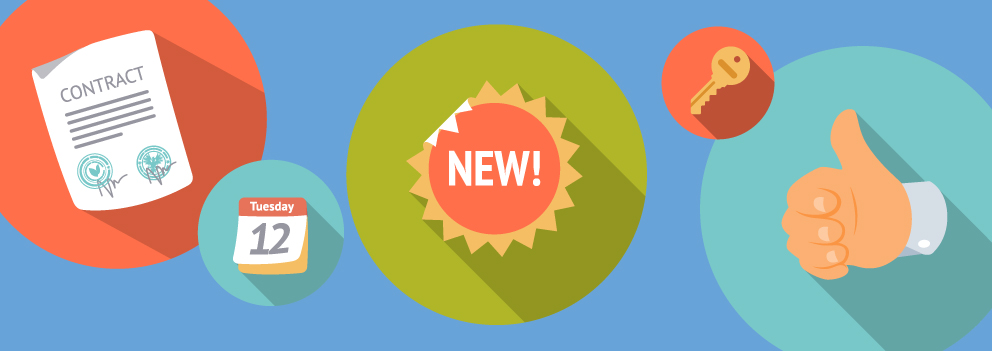
Dealing with Redundancy - Part 5 - Finding a New Job
Once your redundancy is dealt with and any retraining has been undertaken you will probably need to find a new job. This can seem daunting, particularly if you have not had to look for a new
read more
Redundancy - Advice for Employers and Businesses
When we hear the word 'redundancy' it is natural to think of the impact that it will have on the person being made redundant with out regard for the difficulties inflicted upon the employer
read more
Dealing with Redundancy - Part 2 - Financial Advice
Do you know the tax implications of receiving a redundancy package and how to avoid paying unnecessary tax? If you are going to find yourself struggling financially do you know how to lessen
read more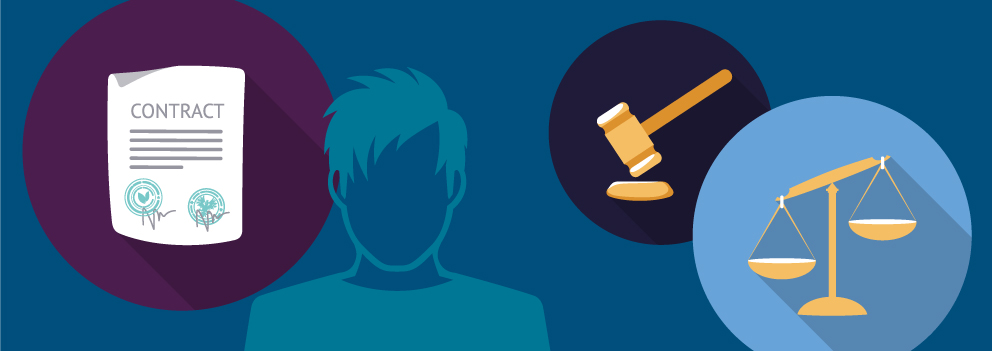
Dealing with Redundancy - Part 1 - Knowing Your Rights
Do you know what redundancy package you are likely to receive? Do you know what the government stipulated minimum package is? As well as detailing the legal and financial aspects we will
read more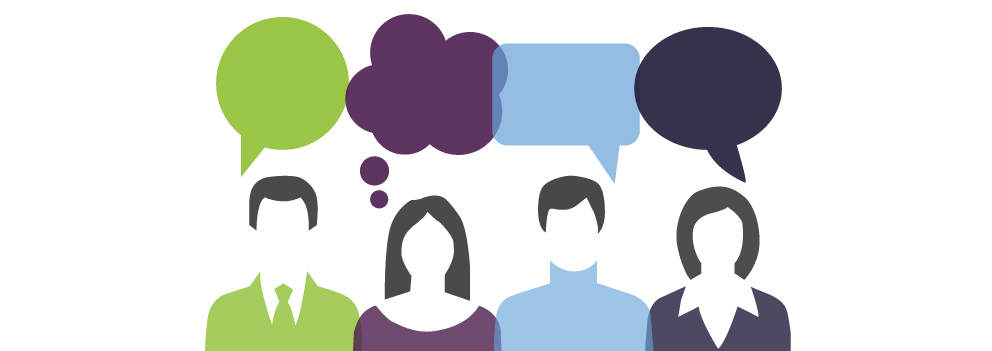
Dealing with Redundancy - Part 3 - Psychological Impact
Do you feel like you’ve lost your identity and can’t stop feeling negative? It is not only the practicalities of redundancy that need to be addressed. Redundancy can also have a massive
read more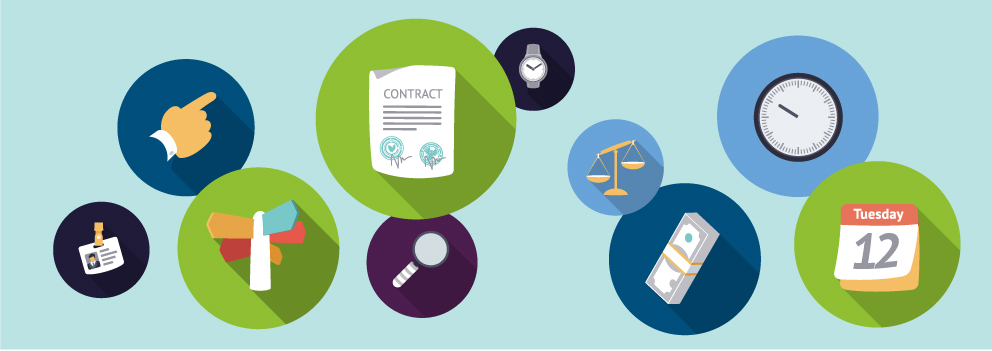
Top 10 things not to do in a job interview
We've been asking local employers for tips on what to do in an interview – and, of course, what not to do! Here are our top 10 not to do in that all-important job interview.
read more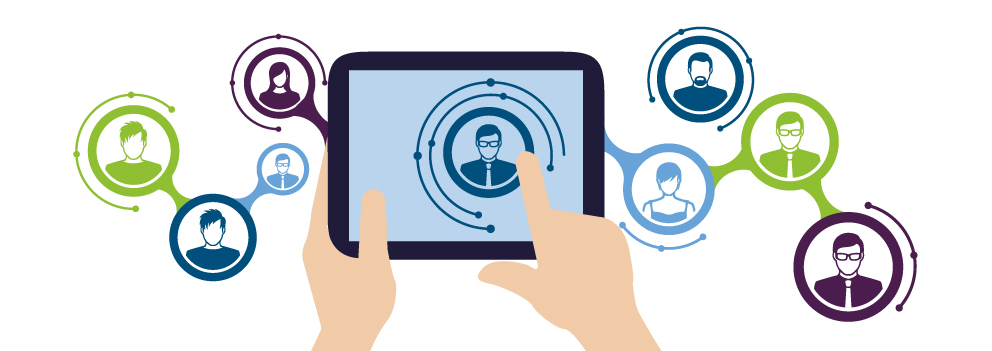
Dealing with Redundancy - Part 4 - Retraining and Development
Have you thought about a new career or improving upon the skills you currently have? In this article we will offers tips and advice on increasing your 'employability' through courses and
read more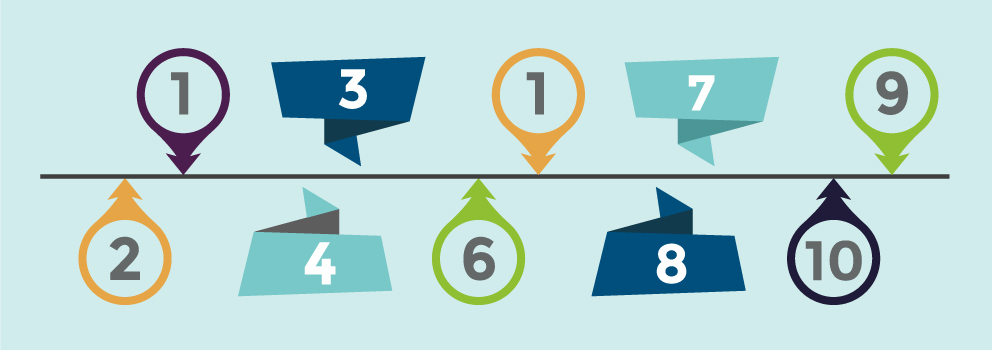
10 Steps to Creating Career Opportunities
It's too easy to start looking in the job section of the paper and applying for everything that has an attractive salary, car or any other perks, before falling into this trap, be really
read moreGuildford Employment & Business News
When attending interviews it's always good to be up to date with what's happening in the local business and employment sector - we hope you'll find these selected news articles interesting
Job cuts at the Environment Agency
England’s Environment Agency has announced it will be axing an estimated 1500 jobs from the flood protection department as part of an organisation restructure. The news comes amidst the country’s latest flood warnings, which sees some parts facing severe winds, torrential rain and major flooding. Several rivers have already burst their banks, and there are currently 188 flood warnings across the country. ..read more
Jobseeking in Guildford
Earlier this year, Guildford was announced as the third best place to be job seeking in the UK, with over 1.4 jobs on offer per job seeker. The wages for jobs in Guildford are also considerably higher than in other parts of the ..read more
Increase in job opportunities available in the construction industry
The south of England has seen a rise in the number of construction jobs available over the past year. There has always been a big difference in the number of job opportunities found in the south compared to that in the north of ..read more
Job losses expected as Surrey hospital announces budget cuts
The Royal Surrey County Hospital in Guildford has announced cuts are to take place across the organisation, with an estimated 30 jobs lost as a result.The hospital is in talks to discuss options moving forward and is liaising ..read more
Project launched in Guildford to help jobseekers and unemployed youngsters
A new project was launched earlier this year to tackle the problem of youth unemployment and to help support those on job seekers in Guildford. The project involves a number of local organisations working together to provide ..read more
What does your CV say about you?
Guildford is the third best city in the UK to search for a job
A positive attitude is a vital aspect to your job hunt
Final concert for Guildford Philharmonic Orchestra
Guildford railway station conflict with plans for new offices
Guildford Waitrose plans challenged
What not to do in your Guildford job interview
Top 4 questions asked at job interviews for Guildford job seekers
Interview Tips to help you get that perfect job in Guildford
The Recruitment Process to Fill your Guildford Job
How can you find the right Guildford job for you?
What is different about looking for jobs today in Guildford compared to 10 years ago
Covering Letter hints and tips for when applying for jobs in Guildford
Looking for a second job in Guildford?
University of Surrey / Guildford College
Public Sector jobs in Guildford
Information on local newspapers covering Guildford
Example CV for people applying for jobs in Guildford

How can I get a job? - Tips from successful candidates
The leading training provider in this region often get
read more
Making the right first impression at interview
Now that your perfect CV has landed a meeting with your would-be employers, you won't want your personal presentation skills to let you down. So here, Lorraine Ragosa-Rout of First4Personnel
read more